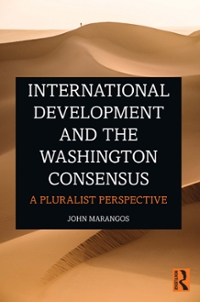Extract A: Students in higher education in the UK in thousands, by type of course, 1980/1981 and 2008/2009 1980/81 2008/09 Undergraduate Full-time 473 1328 Part-time 247 686 Postgraduate Full-time 62 269 Part-time 45 274 All higher education 827 2557 Source: Social Trends 41. 2011 Extract B: Students should not have to pay fees for attending university Universities need more income if they are to continue to provide quality education and to compete in international education markets. Where is this money to come from? Some suggest that universities should be financed, as they were before 1998, largely through government spending and taxation. Subsidies were paid directly to universities; students received grants from government to help finance their living 5 costs. UK students did not have to pay tuition fees. Others argue that universities should be financed by increasing the amount of money they receive from selling their research to commercial companies. However, even in the case of the most successful universities in the USA, business provides only about 1% to 2% of university income. Less successful American universities raise much 10 less money in this way. Another option is to persuade rich individuals and companies to donate money to universities. Top American universities such as Harvard and Yale are very successful in appealing for gifts of this kind. Even so, US universities fail to raise sufficient gift money to pay for most of the education they provide. Britain is very different from 15 America and lacks a culture of charitable giving to universities. Sources news reports, 2012 Extract C: Should we charge students higher fees for attending university? Since 1998, UK students have been charged tuition fees to help pay for their university courses. The fees were raised significantly in 2012. Supporters of student fees believe that fee income provides the best way of financing the growth of higher education. They argue that the lifetime retum on a university degree is huge. The average graduate eams f160 000 more than the average non-graduate over a 5 lifetime, as a result of gaining a degree, Therefore, those who personally profit from education should contribute more towards the cost of providing the service, Without the better-off paying fees, the argument goes, university remains a highly subsidised middle-class privilege. They conclude that this cannot continue and that politicians must give universities the freedom to charge higher fees. 10 However, tuition fees are often attacked on the grounds that they deter young people, especially those from poor families, from going to university. Nevertheless, until 2011 at least, despite fees being charged, university applications continued to increase across all income groups. The debate is about more than paying for university education, It centres on the 15 nature of the society in which we want to live. Some economists argue that education is a service which is essential to any society which claims to be civilised. They also believe that education is a service which markets tend to under-provide. Source: news reports, 2012 0 4 Using the data and your own economic knowledge, assess the case for financing universities mainly through charging fees to their students. (25 marks)







